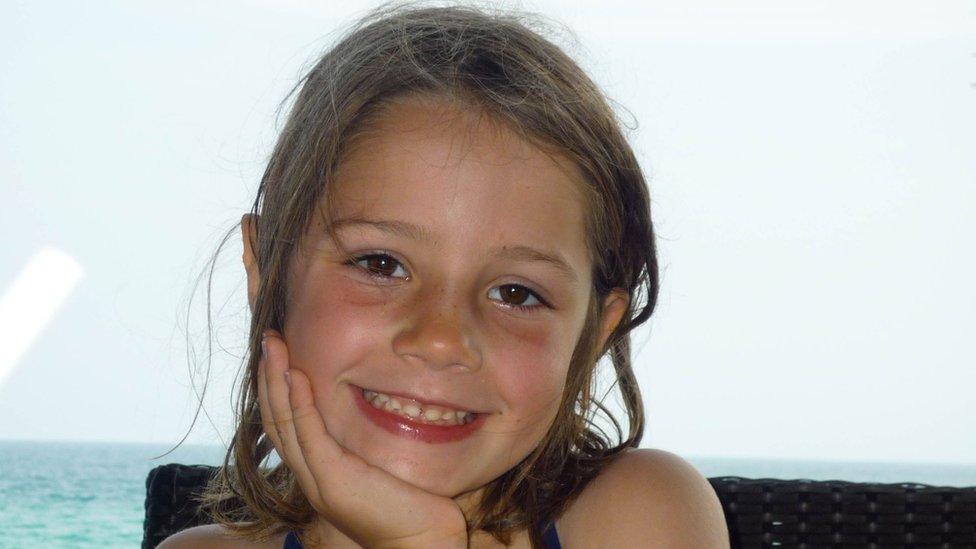Bereaved parents' anger at 'broken' online safety promise
- Published
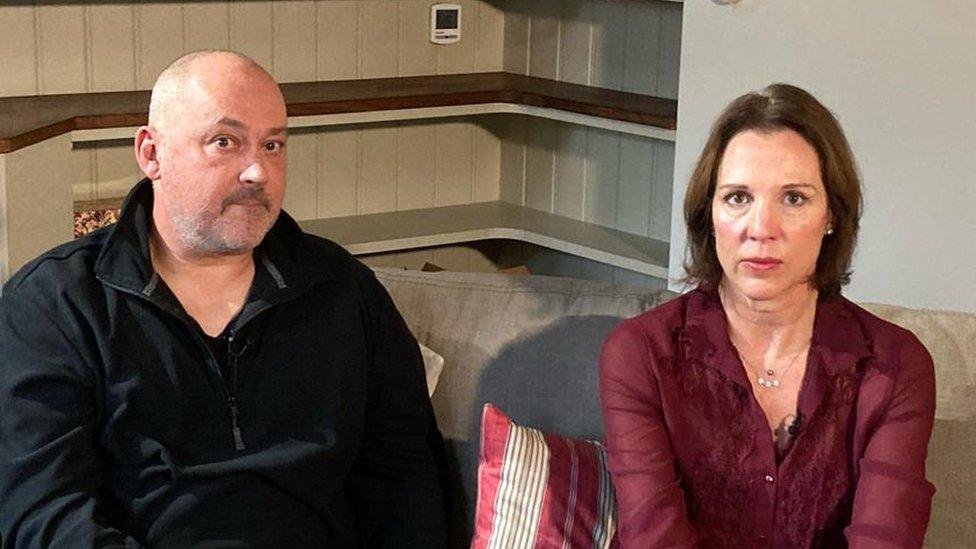
Stuart Stephens and Lorin LaFavre are campaigning for tougher laws
Parents of children who died in circumstances linked to social media and gaming have accused the government of "watering down" online safety laws.
They claim Science Secretary Michelle Donelan is making a "callous" decision to retract a "personal commitment".
In a reply to the group, Ms Donelan said she took the commitments she made to them "incredibly seriously".
But, she added in a letter, she believes the changes they wanted are covered by existing laws.
In June, the government announced plans to give coroners new powers to access information on bereaved families' loved ones held by tech companies, where there is a reasonable suspicion that the online world is relevant to their deaths.
But under the Data Bill, set to be debated in parliament next week, this provision would be clarified so it only applies to children who have taken their own lives, and not children who have died in other ways with social media potentially involved.
In a letter to Ms Donelan, sent at the end of November, Bereaved Families for Online Safety said they had been "gratified and moved" by the government's original commitment in June, with many of them travelling to parliament to see it announced.
"Our children died in different ways, but the tragedy for each of us remains," the group of 10 parents wrote.
"So, we were devastated by the government amendment that it has changed this measure in the Data Protection and Digital Information Bill to children who have taken their own lives."
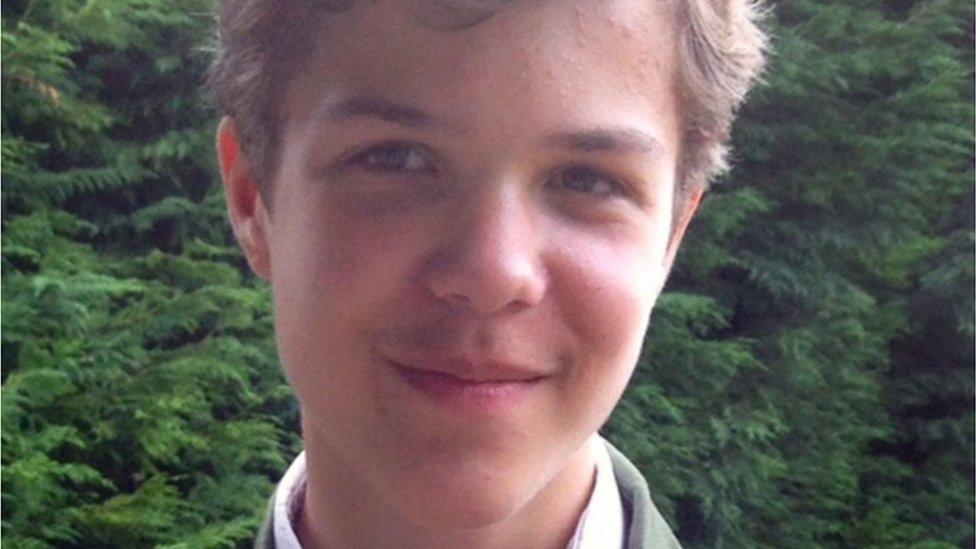
Breck Bednar met his killer online before travelling to to meet him in 2014
On Thursday, Ms Donelan replied to the families.
"I take the commitments we made during the passage of the Online Safety Act incredibly seriously and am committed to ensuring that there is a comprehensive set of powers and processes in place," she wrote.
"The government believes that the amendment tabled to the data bill, combined with existing powers, achieves this".
Ms Donelan said that the proposed laws do not cover cases of murder "because the coroner's inquest would usually be postponed until criminal proceedings had concluded".
She said that the police had "extensive powers of investigation" into tech companies which were strengthened last year by a data access deal with the US.
One of those who signed the parents' letter was Lorin LaFave, whose 14-year-old son Breck Bednar was murdered in 2014 by a boy he had met through online gaming.
She told the BBC: "We celebrated as campaigners in a big group. We felt so proud and pleased at the work that we had done, and made these changes that were so important for other families.
"So then to find out that that moment was all false or fake is quite hurtful.
"And we're angry. As a group, as individuals, we're angry. It's not right to backtrack."
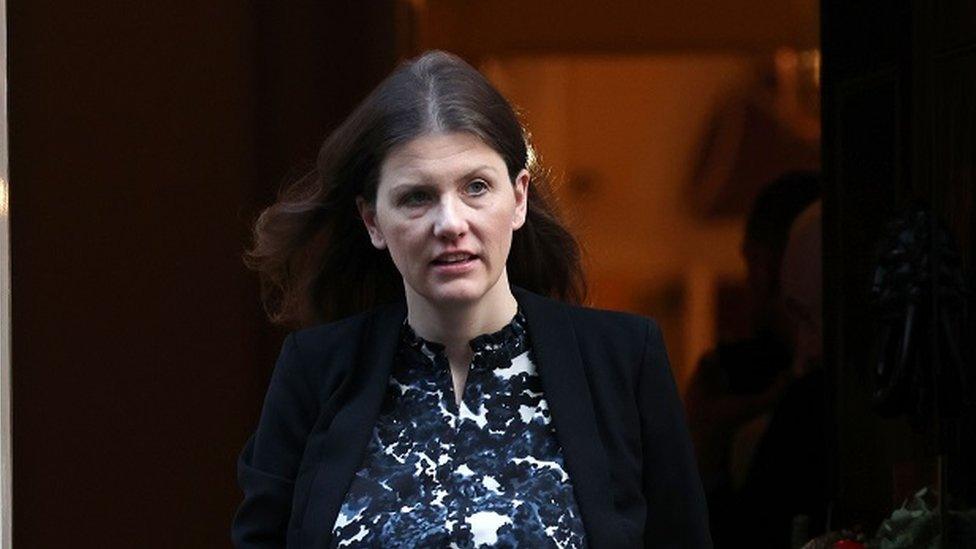
Michelle Donelan says police had 'extensive powers of investigation'
Another signatory was Stuart Stephens, whose 13-year-old son Olly Stephens was murdered by two boys in 2021, with social media at the heart of the case.
He said that being able to understand his son's online interactions was an important part of the grieving process.
"You need to understand. You need to know what happened, no matter how traumatic or how brutal it is to hear. You need to hear about it because that was your child.
"You raise that child. You love that child. And you thought you'd done a good job. But somebody else through another medium was able to step in and take your child. So why don't we have the rights to access that data?"
The data bill will be debated in the House of Lords on Tuesday, where Baroness Kidron, a filmmaker turned online safety campaigner, is leading the pressure on the government to back down.
She said she believes Ms Donelan is trying to fix the problem but has failed to grapple with the issues so far.
"I know the secretary of state would like to see this happen in a good way, but I am not convinced," she said.
"These parents who battled for this, who were promised this, are still going to have Christmas without that child. They are not doing it for themselves, they are doing it for others, and the government should not be pitting itself against bereaved parents of murdered children".
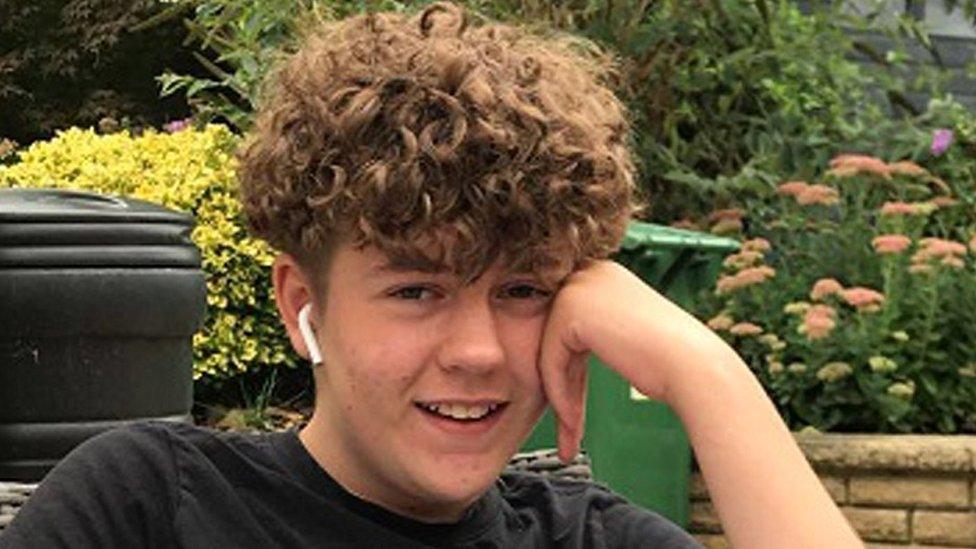
Olly Stephens was murdered in 2021
Labour accused the government of "breaking the trust of bereaved parents".
Peter Kyle, the shadow science secretary, said: "Ministers must explain why they want to limit coroners who are looking into deaths of children.
"Labour will use every opportunity to stop this bill watering down previous online safety commitments."
Antony Walker, the deputy CEO of techUK, which represents technology companies, said: "Access to data to support investigations is important and we want to ensure that the law allows for this."

Are you affected by the issues raised in this story? Please share your experiences by emailing haveyoursay@bbc.co.uk, external.
Please include a contact number if you are willing to speak to a BBC journalist. You can also get in touch in the following ways:
WhatsApp: +44 7756 165803
Tweet: @BBC_HaveYourSay, external
Please read our terms & conditions and privacy policy
If you are reading this page and can't see the form you will need to visit the mobile version of the BBC website to submit your question or comment or you can email us at HaveYourSay@bbc.co.uk, external. Please include your name, age and location with any submission.
Related topics
- Published27 November 2022
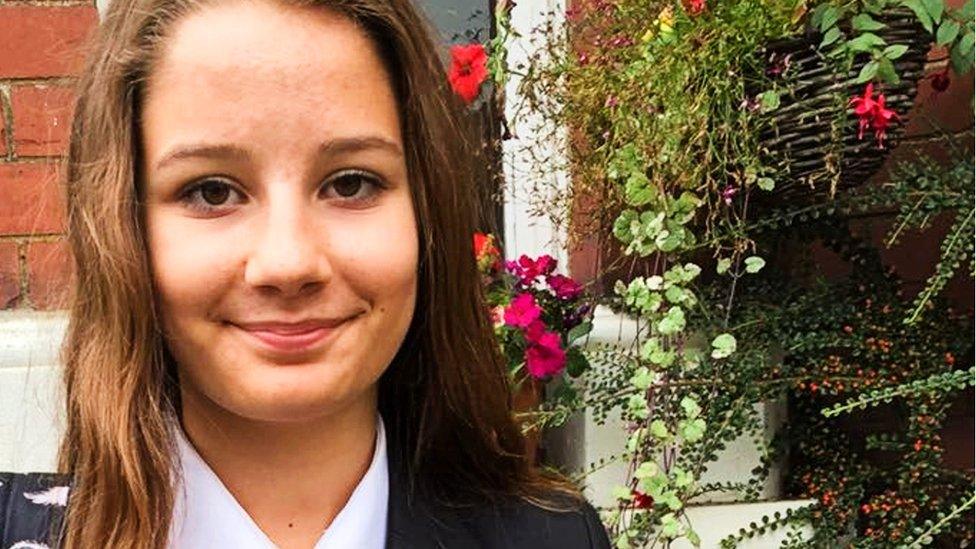
- Published30 September 2022
